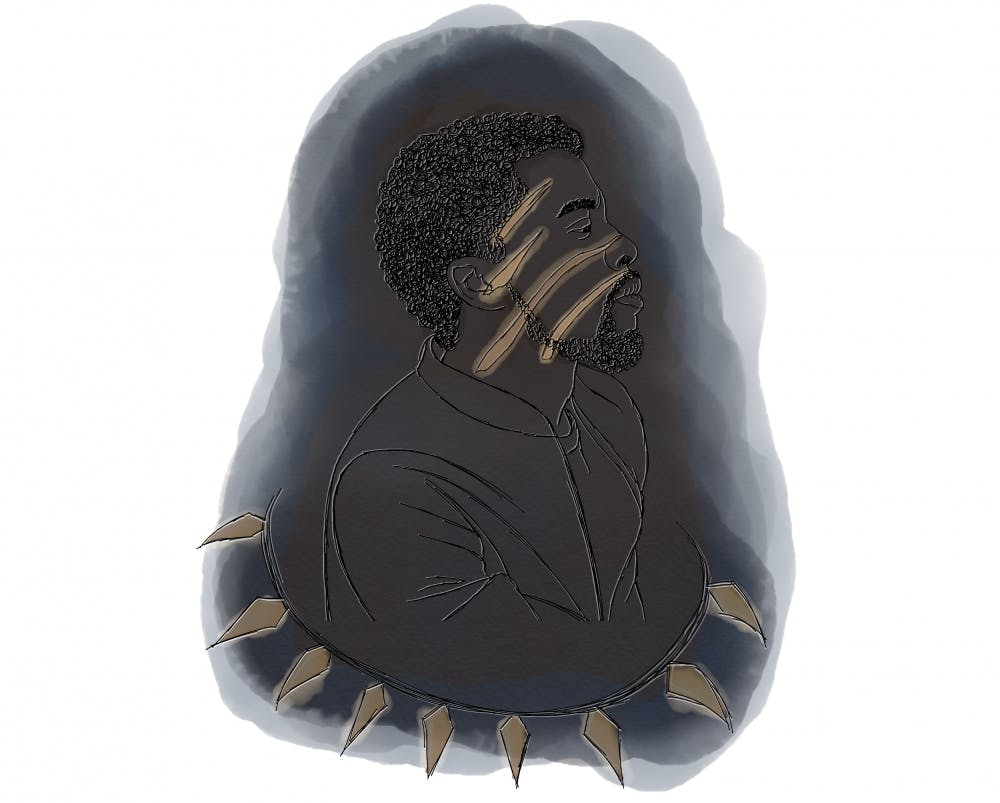“Black Panther” is breaking box office records. It sold the most presale tickets ever recorded by Fandango and is the second-highest grossing superhero origin story.
This is all for good reason – the film is the first major superhero movie to feature a black director and majority black writers and cast members.
The Editorial Board would like to celebrate the success of “Black Panther” as a landmark film that has the potential to generate momentum for more representation of black experiences and culture in the film industry.
Set in the fictional African nation of Wakanda, “Black Panther” presents a wealthy, technologically advanced society that faces pressure to renegotiate its isolationist international relations policy.
While the film does confront the oppression faced by blacks outside of Wakanda, all but one of the leading characters are separated from this suffering, which is typically central to the plot of major films featuring black characters.
This image of social agency and intellectual power is an important alternative to the primary representation of black culture in cinema.
As many reviewers have pointed out, the film also has incredible, complex female characters who are just as instrumental as their male counterparts in saving Wakanda and bringing positive change.
When asked for their thoughts, the cast passionately expressed their belief in the film’s importance.
Michael B. Jordan, who plays the villain Erik Killmonger, said he thinks because of Marvel’s status, “moving forward, everybody’s going to start to have the courage to tell bold stories that people didn’t think were lucrative, didn’t think that anybody wanted to see.”
Lupita Nyong’o, who plays the Wakandan military spy Nakia, said she values the film’s pan-Africanism.
Nyongo'o told the New York Times, “this movie is really about a contemporary Africa relating very intimately with a contemporary America via the characters of Black Panther and Killmonger.”
Public responses show the film’s creative team largely accomplished its goals. Since its release, “Black Panther” has generated viewing parties, academic panels at universities and churches, and social media trends such as the “What Black Panther Means to Me” hashtag.
The film is not without its critics. Some argue that “Black Panther” upholds the problematic notion of respectability politics by glorifying Wakanda’s king as a noble African figure and demonizing Killmonger as a radical insurgent.
Christopher Lebron of the Boston Review writes that “the bad guy is the black American who has rightly identified white supremacy as the reigning threat to black well-being.” Killmonger, a black American, is painted as the villain of the story for wanting to liberate black people around the world.
Despite this, we still believe there is much about “Black Panther” to celebrate. The movie showcases a long-overdue Afrocentric narrative that allows black audiences to see themselves as smart and heroic. This representation is important.
“Black Panther” has the potential to be a compelling starting point for improved and increased representation of black and African narratives.
No film can be perfect, so it seems more appropriate that concerns such as Lebron’s should be used as constructive criticism for future movies rather than as reasons to tear “Black Panther” down.
We want to see more films with storylines and creative crews that do justice to black and African cultures. We believe the success of “Black Panther” should prove to directors and Hollywood executives these stories matter and deserve to be told.
Most of all, we want people to believe black lives matter. Hopefully “Black Panther” and the future films that build off its momentum will convince audiences that this is true.




